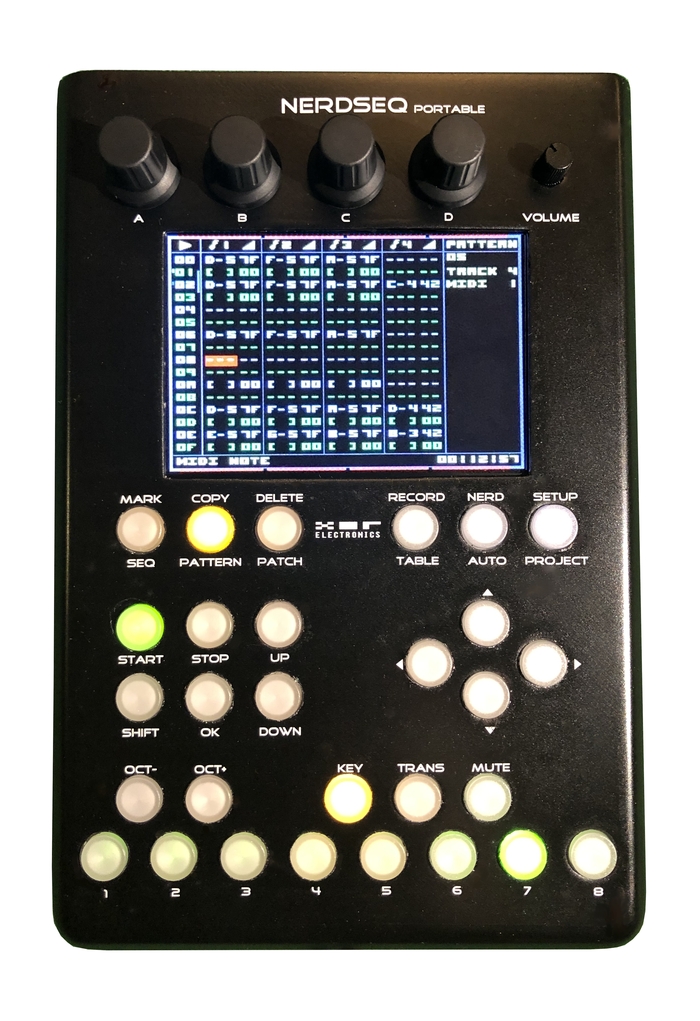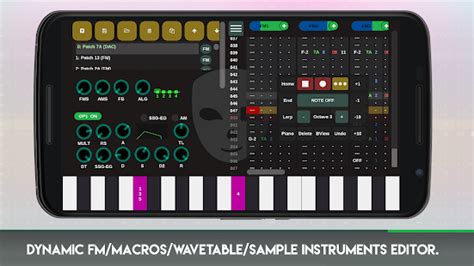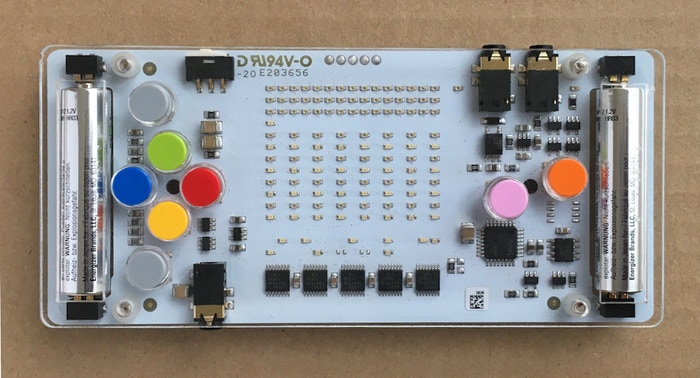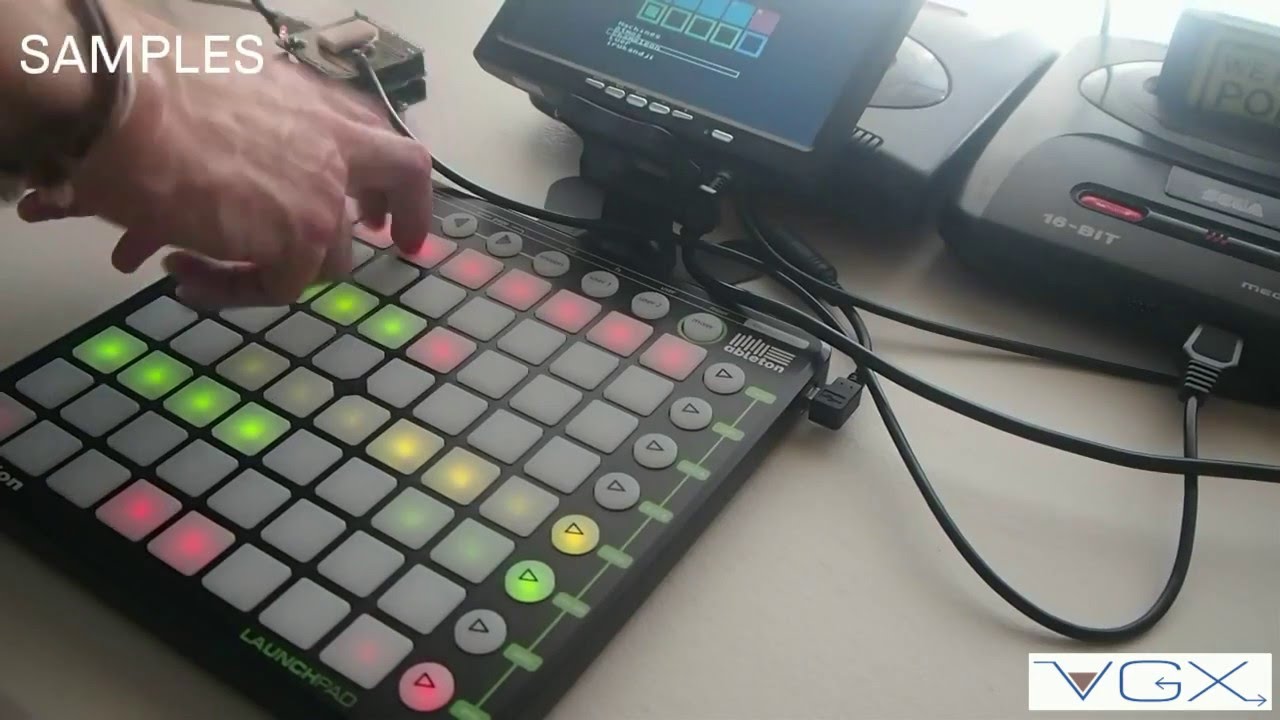that looks pretty great. I see you have to compose your music in deflemask first, before playing it back clip launching style on the actual megadrive. Its a little like renoise phrases in a way.
Megadrive has so much potential as a creative instrument. The combination of grainy, low quality samples, coarse sounding FM from the YM chip and normal waveforms from the PSG chip. A lot of possibilities for interesting voices. ‘mixed media’ kind of thing.
Id like to see a real live set like actual pad drumming an entire composition live on launchpad x or one that has velocity sensitve pads (not just clip launch buttons), maybe a few phrases, but short ones (maybe some table based textures with a decay, something like that, or just a bassline). Something interesting to watch live like a set with two megadrives, two 80s CRT televisions miced up and two launchpad x…for the totally live pad drumming megadrive bonanza to post on youtube.
I imagine it would take a lot of time to set up per song though. Its definitely for those people whose instrument is megadrive only, 100% megadrive focused. time waits for no man. Better be on point to acheive megadrive greatness. Logically thinking the whole thing out in deflemask first, and it may sound slightly different once you get it all into the MD.
I guess its always possible to sample it out again into renoise, then you could have sample fx chain and modulation sets for the live pad drumming setup, but unless it has midi BPM timing…the framerate based speed wont be any good for sequencing the phrases, first written in deflemask, then sampled out from real megadrive, in renoise.
If there is a trick with getting the right one PAL or NTSC, with framerate at 60Hz, there may be some ‘speeds’ which are ‘true BPM’…the one that is 50Hz…I think it cant be done.
Looks excellent though, its great to be able to make something like that, so props/kudos to whoever created it. Id love it if there was a native megadrive tracker that came on a cartridge, input being control pad, and could be midi synced (for sampling out at true BPM) or sequencing it directly from renoise.





